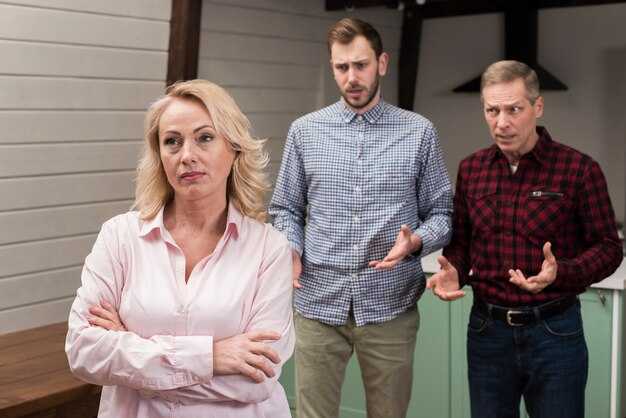No matter what your avoidant partner says, if they respond to conflict by giving you the silent treatment, storming off, or disappearing for days or weeks without any reason, that behavior is emotional abuse. If you find yourself obsessing, frantic for the smallest sign of contact, consider this a Lifeline: those patterns are reactivating your trauma wounds, and unless the relationship’s whole dynamic shifts, finding lasting peace or real happiness will be extremely difficult. I’m not offering professional therapy, and what follows about stonewalling is no substitute for clinical help. I am, however, someone who learned how to break this toxic cycle in my own life — from both sides — so genuine love and trust could eventually grow. Today’s letter comes from a woman I’ll call Brinn. She writes:
Dear Anna — I think I’ve become trauma bonded to my boyfriend because he stonewalls after fights. I’m trying to figure out whether I’m being unrealistic to keep fighting for this relationship despite how damaging these patterns are.
Okay, I’ve got my pink fairy pencil ready to mark what I want to revisit, but first let’s read Brinn’s story and unpack it. I’m 26, he’s 42, and we’ve been on and off for two years. When things are good, the relationship is wonderful: he showers me with attention, texts frequently, and plans road trips for us. The main issue is how we handle disagreements. Usually a fight starts with me getting moody — I’m normally bubbly, but when I’m hungry, exhausted, or worn out I become quiet and a bit sharp. He notices the shift and instantly becomes furious and defensive, blaming me for ruining his mood and insisting whatever is upsetting me isn’t worth the drama. That discounting of my feelings deregulates me emotionally and we erupt into loud arguments with me crying. After the fights he shuts down for days, ignoring my calls, texts, and any attempt to talk. During those silent stretches I become desperate and distraught. I’m almost always the one who reaches out and apologizes, and when we patch things up it feels like a weight lifts and the fight never happened — we return to being loving until the next clash. Toward the end of the first year the fights escalated and he’d threaten to break up, though we consistently reconciled. Once he went silent for a month and a half; eventually I took that as a sign to move on and started seeing someone else. He came back begging me to return, promising change and that he wouldn’t stonewall again, so I went back. At first he tried, but over time the arguments and the silent treatment resumed. He explains that he needs long stretches to process and calm down — we’ll come back to that. He had a very difficult childhood: his father died when he was young, his mother was often absent due to work, and at 16 he was kicked out by his stepfather after a misunderstanding. He doesn’t have many close friends or family, so he lacks much support beyond me. I struggle to tolerate the stonewalling. My thoughts spiral and I can’t focus on anything other than resolving the fight. I know we love each other and so do our friends and family, who tell me to leave because of how his silence affects me, but I can’t seem to walk away. I think I might be trauma bonded and trapped in this cycle of highs and lows. Maybe it’s the trauma bond speaking, but I really want this relationship to work — outside of the stonewalling he’s sweet, caring, and funny. I’d really value your opinion, fairy. Thanks so much, Brinn.
There’s a lot to address here. First, the large age gap is notable: you’re 26, he’s 42, and you’ve been together two years. When everything’s good, it’s wonderful, but conflict is the recurring problem. From what you describe, he likely has an avoidant attachment style and lacks healthy coping strategies. That doesn’t excuse his behavior: as I said at the outset, stonewalling — shutting someone out, refusing to speak, or ghosting them — is a form of emotional abuse. Any single instance of that kind of hurtful behavior is a valid reason to end the relationship, regardless of the explanations he offers. The crucial question is how the relationship affects you: does it elevate you into a better version of yourself, or is it tearing you down? From what you described, it’s the latter, and that’s a clear warning sign.
Often when someone is paired with an avoidant partner, the other person may have an insecure attachment history themselves. You didn’t share your background, but individuals who grew up with inconsistency — for example, an alcoholic or emotionally unpredictable parent — can be primed to accept the on-and-off care of an adult partner. When caregivers oscillated between presence and absence, we learn to tolerate unpredictability and to blame ourselves for the withdrawal. You’ve named it correctly: trauma bonding. Another term is intermittent reinforcement — a manipulation strategy used even in extreme contexts like hostage situations — where affection and kindness are given unpredictably and then withdrawn. That erratic cycle leaves the person trying to figure out what they did wrong and hoping that by being better they can undo the withdrawal. I don’t doubt that you have bad days and moods; everyone does. But his response — stonewalling — is not a reasonable or compassionate way to handle your emotions.
This pattern isn’t unique to humans; even animals show similar responses to intermittent reward. The attachment system in our nervous system is powerful, and when love is unpredictably taken away, the urge to cling can intensify rather than diminish. People without childhood trauma often have more resistance to accepting such mistreatment; they’re more likely to walk away rather than tolerate a partner who disappears for weeks. It appears you’ve been unable to insist on what you need, and that’s eroding your self-regard. Psychologists suggest that children who experience parental emotional unavailability internalize the belief that they caused the neglect, and that self-blame can carry into adulthood. Whatever your past, it deserves attention so that present-day Brinn, at 26, can be protected from a man who makes you feel small and immobilized.
There’s also a term therapists use for an overwhelming fear of abandonment — Pete Walker calls it abandonment rage or “abandonment mange” — where early abandonment trauma produces intense emotional reactions that exceed the situation’s apparent severity. I don’t know if that exact history applies to you, but the psychological effects of a relentless on-again, off-again relationship certainly create a similar desperation. You kept letting him back in, likely because part of you believed if you were perfect enough you could stop the pattern, even though the evidence shows it repeats. If you want my view, Brinn: this is unhealthy. Stonewalling is serious and harmful.
If he were committed to changing, you could ask him to take responsibility and learn better ways to manage overwhelm. Avoidant people often need alone time or downtime to recharge and can become overwhelmed by another’s strong emotions; the essential skill they lack is how to step away kindly and clearly. A compassionate alternative to disappearing would be something like, “I hear you and I care, but I’m feeling overwhelmed right now — can I take a short break and come back to this when I’m calmer?” Or more gently framed, “I need a pause; I’m going to meditate and then we can talk.” There is a loving way to step back without abandoning the other person. Stonewalling was identified as one of the most destructive behaviors in relationships by the Gottman Institute — alongside criticism, contempt, and defensiveness — and when it’s present, it signals a need for urgent change. If your boyfriend is willing, you both could look into Gottman’s approaches to communication.
But you don’t have to make changing him your life’s mission, especially if he’s not genuinely committed. Even if both people have wounds, being with someone who chooses to repeatedly flee is not something you must endure to heal. Healing and healthy relationships often happen together, but you don’t need to be fully healed before finding a partner who’s emotionally available. Sometimes relationships don’t work out, especially those rooted in early trauma, and though it’s painfully destabilizing when they end, some endings are necessary for long-term wellbeing. There’s a middle path between staying and running: stepping back enough to gather information and regain your footing, rather than chasing and apologizing repeatedly. You may even need to act like you’ve moved on — at least outwardly — to stop yourself from constantly calling and trying to fix things.
The goal is to be with someone who generally enhances your life and makes it better to have them in it. If he repeatedly proves he can’t be that person, he’s showing you what staying would mean for your future. He might never be able to meet your needs; he might, but you can’t build your life around hoping he will. What you need, Brinn, is a rich life full of joy, friendships, and meaningful activities so you don’t have to tolerate damaging behavior out of desperation. When you have fun plans and people to rely on, you’re less likely to accept mistreatment because you’re not dependent on one flawed source of emotional safety.
Trauma-driven relationships often begin when we aren’t closely connected to others, and once someone becomes a central attachment, it’s tempting to deprioritize other bonds. If that sounds familiar, know that a key ingredient of healthy partnership is a network of supportive relationships beyond your romantic partner — friends, community, or groups where people work on growth together. That could be a 12-step group, a healing-oriented membership, therapy groups, or friend circles focused on recovery and personal health. What’s not helpful are friends who are deeply wounded, very opinionated, or bad at offering balanced support. The most useful allies are people committed to their own healing and modeling healthy relationships or stability. When you’re stuck in a toxic relationship, it’s hard to think clearly and easy to project generalized judgments like “men are awful,” which doesn’t help you make the best choice for yourself. Much of healing is arriving at your own answers, so you need tools to hear that still, small inner voice that knows who you are and what you want.
When you’re living in constant drama, that inner voice gets muted, and you become reactive, grabbing at whatever relieves the pain briefly even if it hurts more later. If you’re vulnerable to romantic manipulation from someone who repeatedly pulls you back in, it helps to have practical reminders and strategies to protect your boundaries. I’ve compiled a list of common tactics romantic manipulators use — a small, portable cheat-sheet you can keep in your purse — to help you recognize and resist being pulled back into unhealthy cycles. It’s a free download available to you, and with that, I’ll see you soon.













